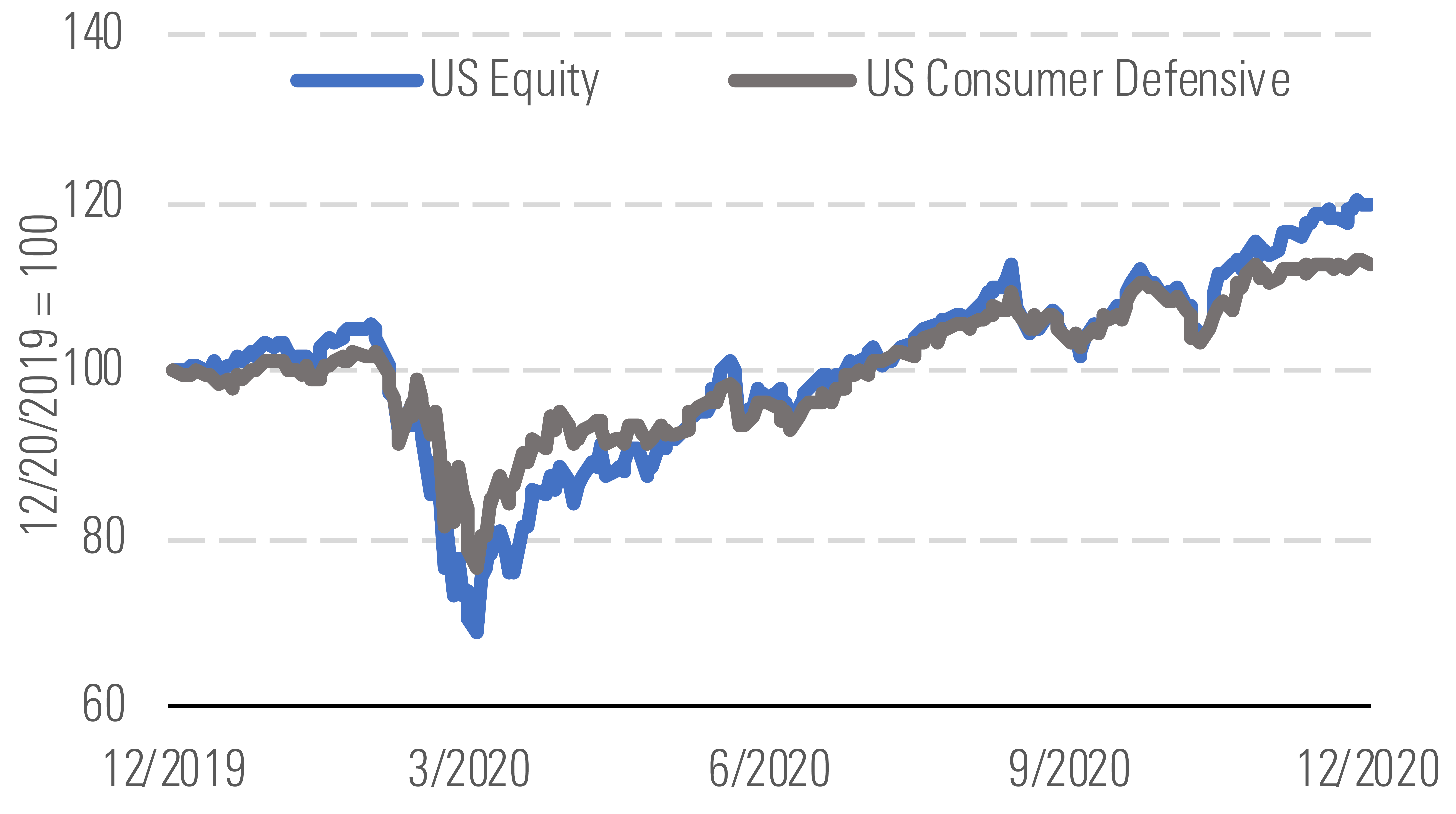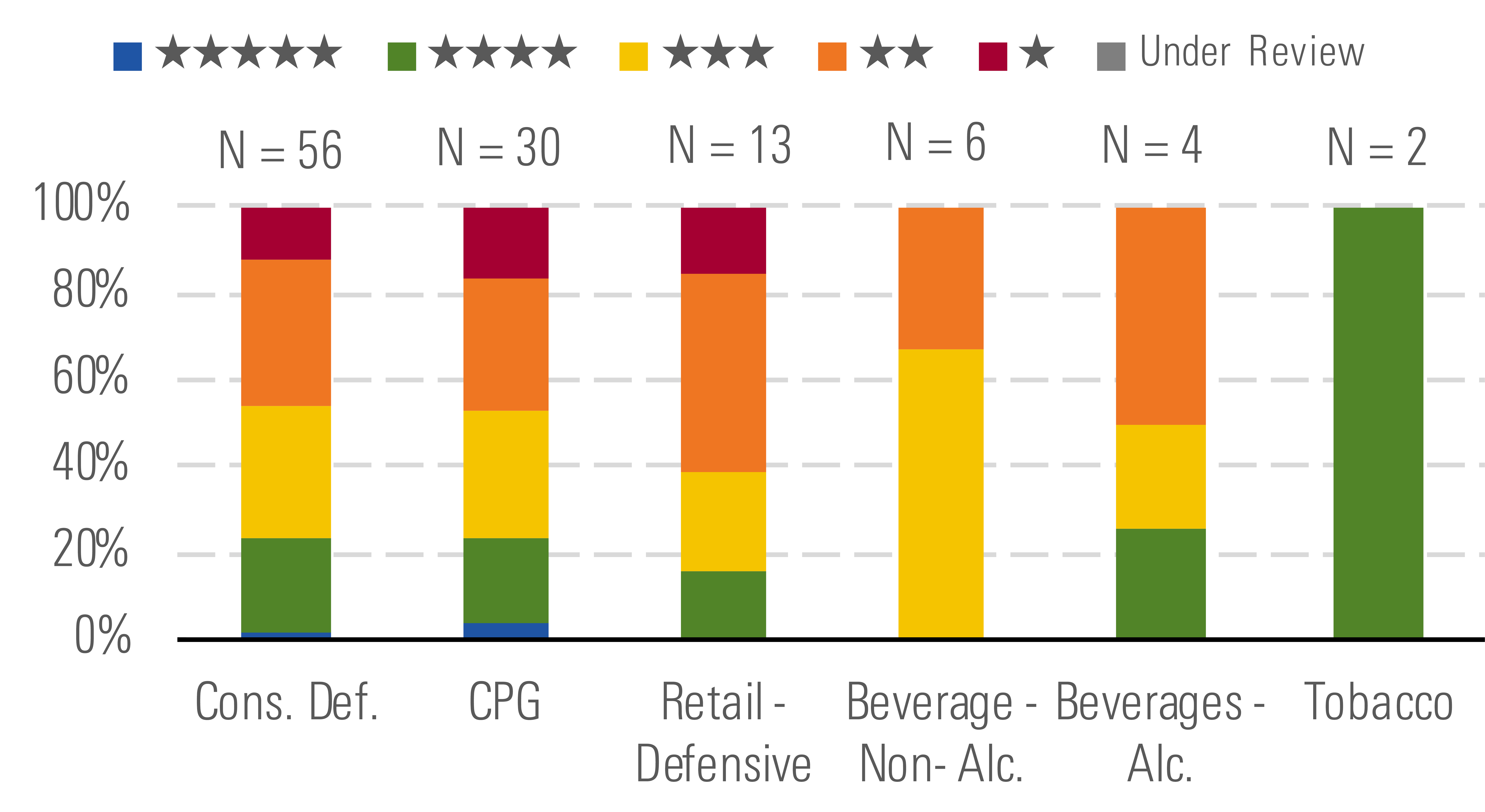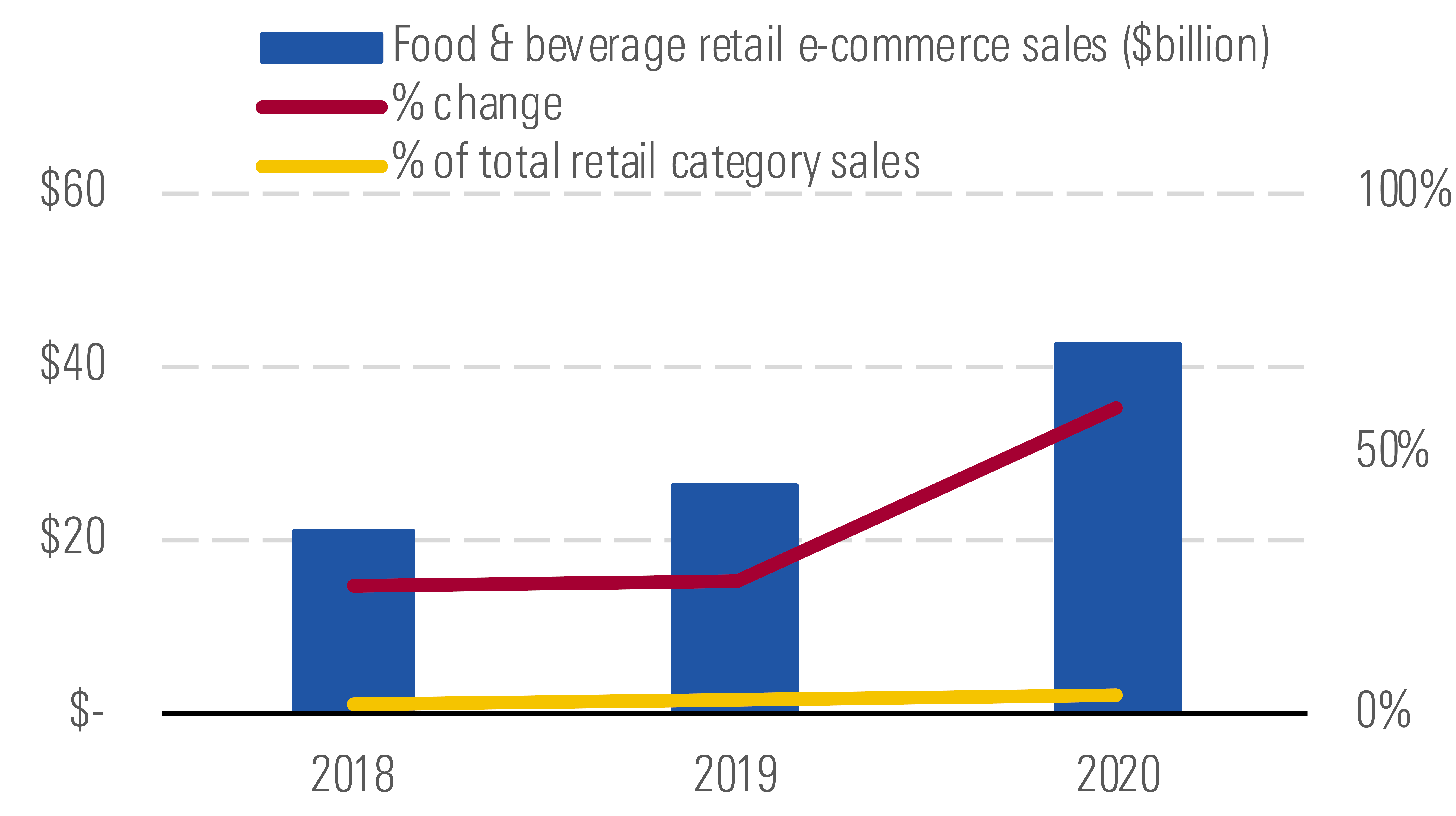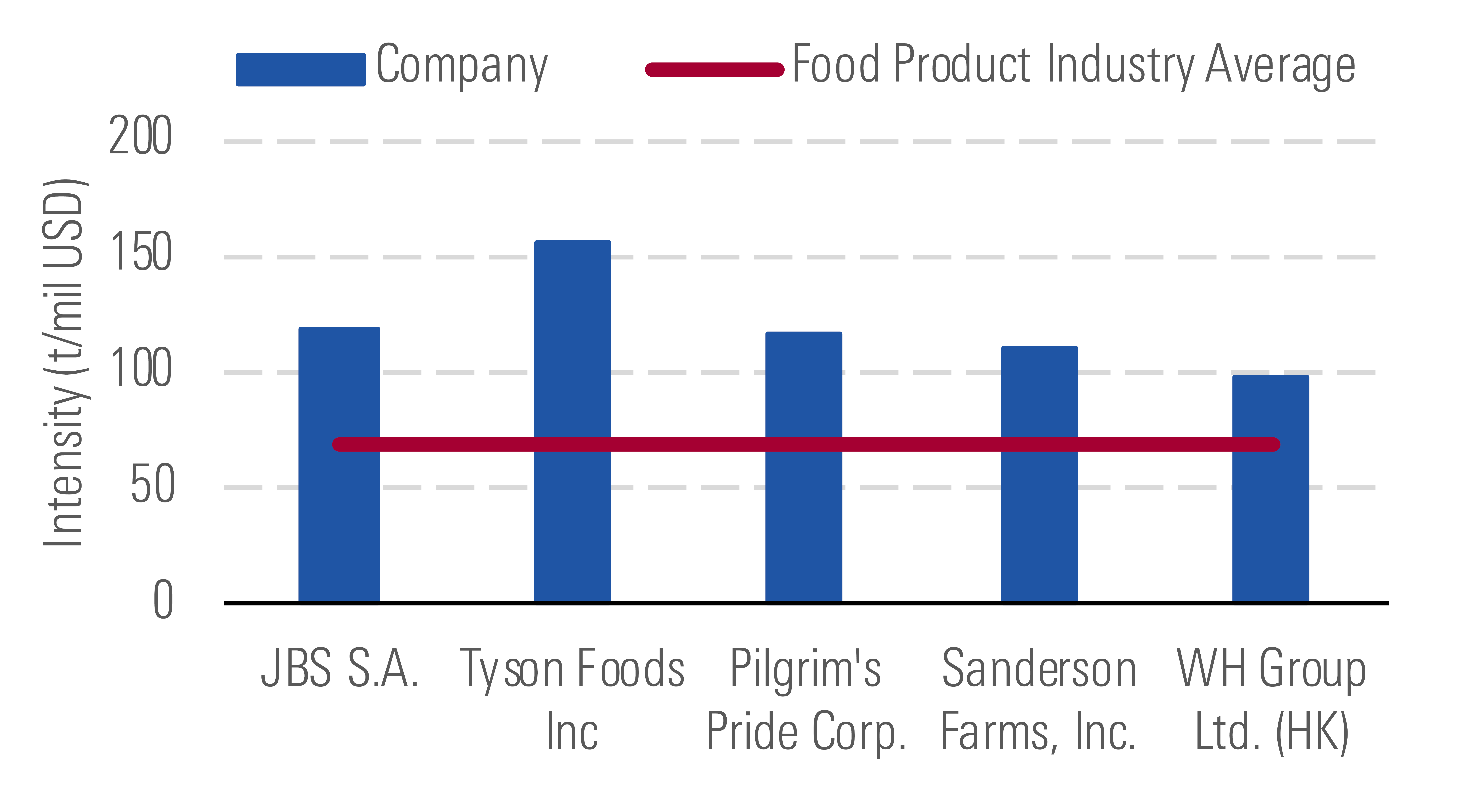Bargains Scant in Consumer Defensive Sector
Alcohol and tobacco still present the biggest opportunities.
The consumer defensive sector trailed the broader market again in the fourth quarter of 2020, returning just 6.2% compared with the market’s 12.8% gain through Dec. 21.

Consumer defensive lagged the broader market in the fourth quarter - Morningstar
As a whole, we view the sector as fully valued to slightly overvalued, with the median consumer defensive stock trading at a 7% premium to our intrinsic valuation versus the 2% discount we valued the sector at in September. While social distancing mandates persist as COVID-19 cases have once again surged (benefiting defensive retailers and consumer product manufacturers as shoppers stock up on essential fare), we do not think the torrid pace of sales will persist over a longer horizon, suggesting valuations in the aggregate are heated. However, when taken together, 20% of the combined retail defensive and CPG names strike us as undervalued, trading in 4- or 5-star territory.

Pockets of value remain in the CPG and retail defensive subsectors - Morningstar
One byproduct of the pandemic has been an increased shift toward e-commerce for consumer packaged goods, where penetration has languished for some time. However, according to eMarketer, food and beverage sales online have grown nearly 60% year over year in 2020. Even though we don’t think it’s a guarantee that all of this shift will prove permanent, as a negative experience related to quality or concerns surrounding out-of-stocks could dissuade consumers from using the channel as much after the pandemic, this recent surge buoys our expectations for e-commerce to rise to a mid-single-digit level of CPG sales within the next few years.

COVID-19 has prompted consumers to give e-commerce a try - Morningstar
Concerns surrounding environmental, social, and governance impacts of meat production have gained traction and become more mainstream in recent years. Energy spending, particularly carbon intensity, for meat processors is higher than the packaged food peer group median because of the strenuous requirements of meat processing and the need for uninterrupted refrigeration throughout the supply chain. As such, creative entrepreneurs are developing products to tackle this problem head-on, such as plant-based proteins and lab-grown meat. While the latter should not be commercially available for a few more years, plant-based proteins have gained traction in recent years as the products are increasingly available in grocery stores and restaurants. We expect the plant-based protein market to grow to $79 billion by 2030, averaging 19% annual growth over the next decade.

Meat processors display high carbon intensity relative to food peers - Morningstar
Top Picks
Pilgrims Pride PPC Star Rating: ★★★★ Economic Moat Rating: None Fair Value Estimate: $32.50 Fair Value Uncertainty: High
We consider no-moat Pilgrim's Pride an attractive investment, with shares trading more than 40% below our fair value estimate. Our forecast assumes Pilgrim’s will settle the outstanding chicken price-fixing civil class action lawsuits for an amount immaterial to our valuation. We believe Pilgrim's is poised to benefit from China removing its ban on imports of U.S. chicken and from the global protein shortage caused by African swine fever. And even amid COVID-19 and the firm’s 50% food-service exposure (which skews toward quick-service restaurants), we expect strength in retail to largely offset continued weak restaurant sales.
Kellogg K Star Rating: ★★★★ Economic Moat Rating: Wide Fair Value Estimate: $82 Fair Value Uncertainty: Medium
We think investors should consider wide-moat Kellogg, which is currently trading more than 20% below our assessment of intrinsic value. Kellogg has benefited from pandemic-related gains in the retail channel (which drives 90% of its sales) as consumers continue to spend more time at home. But even before the pandemic, we thought Kellogg was taking steps to profitably reignite its top-line trajectory—abandoning direct-store distribution in favor of warehouse delivery, divesting noncore fare and stock-keeping units, and upping investments in its manufacturing capabilities and brands.
Coca-Cola Femsa KOF Star Rating: ★★★★ Economic Moat Rating: Narrow Fair Value Estimate: $60 Fair Value Uncertainty: Medium
Shares of narrow-moat Coca-Cola Femsa, the largest franchise bottler of Coca-Cola by volume, trade more than 20% below our assessment of intrinsic value. The firm mainly operates in Mexico and Brazil but has operations in other Central and South American countries. Shares have been hit by factors largely outside of the firm’s control, from COVID-19 currency impacts to falling disposable incomes in key markets. Although its territories are battling high coronavirus case rates and the region is facing general macro uncertainties, the firm continues to invest in capabilities that should cement its competitive position.

/s3.amazonaws.com/arc-authors/morningstar/c612f59b-89e0-422a-8f71-3eb1300d1a2c.jpg)
/cloudfront-us-east-1.images.arcpublishing.com/morningstar/T5MECJUE65CADONYJ7GARN2A3E.jpeg)
/cloudfront-us-east-1.images.arcpublishing.com/morningstar/VUWQI723Q5E43P5QRTRHGLJ7TI.png)
/d10o6nnig0wrdw.cloudfront.net/04-22-2024/t_ffc6e675543a4913a5312be02f5c571a_name_file_960x540_1600_v4_.jpg)
:quality(80)/s3.amazonaws.com/arc-authors/morningstar/c612f59b-89e0-422a-8f71-3eb1300d1a2c.jpg)